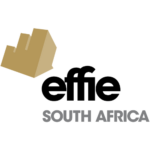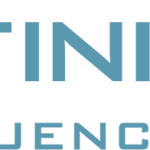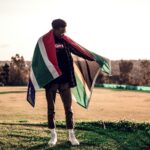South Africans are open to change, particularly when it comes to trying to save money in tough economic times.They are also firmly under the sway of global energies that are reshaping society in significant ways. Neither of which bodes well for brands that aren’t willing to adapt their marketing efforts to challenging times and a changing global milieu.
These and other top level trends were revealed at the annual Ask Afrika Icon Brands™ Awards, held at Melrose Arch in Johannesburg recently. Icon brands are relevant across the South African landscape, it’s not a popularity contest but about which brands South African’s use regularly and loyally. The most loved brands for 2017/2018 are Kiwi (1st place), Coca Cola (2nd), Sunlight (3rd), Maggie (4th), KOO (5th and 6th), Clover (7th), McCain (8th), I&J (9th) and Hullets( 10th).

The results were gleaned from surveys of 15,284 consumers, aged 15-years and older(representing over 25-million adult South African consumers) to determine how South African consumer are changing, how they think and what is important to them.
This year only 28 brands made Ask Afrika Icon Brand™ status for 2017/2018 and it was noted that only 39% (11 brands) have higher solus ratings, implying that the majority of consumers are loyal to a repertoire of brands. That said the top achievers managed to retain more solus users compared with the rest of the brands in their ranking.
Other insights from Ask Afrika’s research include:
Brands should be the best version of who South Africans would like to be
People judge brands far more harshly than they would themselves when it comes to high moral values. Locally and internationally we have begun to look to corporates for perfection around ethical and values-based conduct. It could be that in a world where there is a growing sense that government systems are failing the people, the most- loved brands promise to deliver feelings of community, experience and entertainment.
Loyalty, what’s that?
In the “good ol’ days” loyalty was something people aspired to across all aspects of life, but changing belief systems mean that loyalty no longer serves humanity as it once did. More people are claiming to be atheist or agnostic (about 23% of adults, up from 17% just 10 years ago)and significant numbers of Millennials grew up with divorced parents, or with parents who were never married.
With this shift in traditional values, we are beginning to see that some big (as in long-established corporates and products) have also become less trusted. As a result brands have to work harder to successfully translate relevant and current benefits to consumers.
With South Africa’s constant political and economic flux, it should come as no shock that South Africans are particularly open to change. Out of 11 countries surveyed, South Africans came ninth in terms of brand loyalty, just one place ahead of China.
What is surprising to note, however, is that while age plays a role in loyalty the results aren’t what you might think. In a sample of Millenials ̶ aged 21 to 24; 25 to 29 and 30 to 34 ̶ those aged between 25 and 34 showed similar levels of loyalty while Millenials aged 21 to 24showed much lower levels of loyalty. A similar trait can be observed in baby boomers (50 to 65) So, within a 15 year age range, opinions can differ considerably. What this means for marketers is that you can’t merely group people as, for example “Generation X” or “Millenial” and expect their consumption of brands to be the same.
I think, I thunk a thought
Science is showing that people’s schizophrenic use of technology is changing the wiring in their brains.David Levy, professor at the Information School of the University of Washington calls the phenomenon “popcorn brain”. He says brains that are accustomed to the constant stimulation of electronic multitasking have become unfit for life offline where things ‘pop” at a much slower pace.
As the human brain adapts physiologically to the stimuli of an online world,people are being rewired to crave the instant gratification, fast pace, and the unpredictability of constant change.
Me, my selfie and I
People’s time online is also making them increasingly self-obsessed and there is a very strong sense of self pretence. It’s not so much about what’s happening on the inside as it is about setting themselves up to be seen as being “successful” and “happy”on social media. In this regard “success” is less about what they own and more about how they look and what they experience as well as the ethical causes they pretend to support and the awesome lifestyles they are perceived as having.
South Africans not as happy as they once were
ASK Afrika’s research shows that South Africans are seeing a slow decline in happiness with 51.2% of people surveyed claiming to be happy with their lives now, compared to 54.8% in 2015. Status and assets are becoming less important. In fact with a world so cluttered with “stuff” South Africans are changing their focus to wellness, lifestyle and experiences to help them achieve happiness.
The truth isn’t what it used to be
With terms like “fake news” becoming the norm and social media and the press being used to spread invented opinions and rumour it’s hard to know who or what to trust these days. The increased time online allows people to create a bubble around themselves that feeds into specific biases, opinions and blinkered world views. Ironically it is globalisation and an increase in access to information that allows people to block out (“unfollow”) what they don’t want to see and tap into increasingly polarized world views.
What does all this mean for South African brands?
- It is becoming increasingly important for brands to be open, transparent and honest with the public if they hope to build long-term trust.
- South Africans are looking to brands that fit into the paradigms that help them define the “me”that they would like the world to see them as.
- As the social values and structures of South Africans change, loyalty is not as important as it used to be and there is no longer a need or desire to “stick with what we know”. As a result, brands can no longer expect absolute consumer loyalty, but need to create attainable experiences for their consumers that fit into polarized world views.
- Consumers have varying expectations and the values they apply to themselves are not necessarily those they apply to governments and corporates. Brands need to apply a holistic approach in trying to reach consumers; a linear approach will no longer yield success.
- The digital age means consumers are spending more time online comparing offers and looking for good deals before heading to the shops or purchasing online.
- Monthly affordability is an important consideration. Contracts (such for a cellphone or computer) that can be paid off monthly, or even lease agreements are becoming popular ways of acquiring assets. Access to assets is becoming more important than owning them.
When times are tough, change is good
Consumers consume more holistically, so marketing strategies need to take in a combination of factors including, not just quality and price, but where a brand fits in socially and what it stands for.
Taking all of the above into consideration it makes sense to expect loyalty numbers or solus usage levels to drop and to keep dropping until brands become successful at translating relevant and current benefits to consumers. Maintaining some form of “loyal” consumption is going to take a revolution in the way that consumers are marketed to.
The underlying trend is that “new” is better than “known”. Whipping up meaningful news about a 100-year-old product is not going to be easy, but it is necessary.
About the Ask Afrika Group:
Ask Afrika Group is the largest independent South African market research company. The company focuses on local relevance, benchmarked against the global context, and is also a member of European, Market Research Organisation (ESOMAR). Apart from its South African footprint, Ask Afrika Group also operates in a dozen other African countries.
Ask Afrika Group is well known for delivering strategic and large-scale field projects and for creating benchmarks for industry.
Target Group Index (TGI) research, for which Ask Afrika Group owns the South African copyright, has an annual single source sample of 15 000 locally and 800 000 globally. It has a global geographic coverage of 70 markets, and measures services, products, media, and brands. Ask Afrika’s knowledge of brands is extensive and TGI is already used by the majority of Top 50 advertisers and media owners in South Africa. TGI complements local and global currencies. It has various integrated software modules and offers the most comprehensive insights into demographics, behaviour, product and brand use and attitudes.
- MRF Unveils Latest MAPS® Data - 20th February 2025
- The BRC announces changes to the board and updates for 2025 - 17th December 2024
- Top 50 DSTV TV programmes – October 2024 - 12th November 2024





